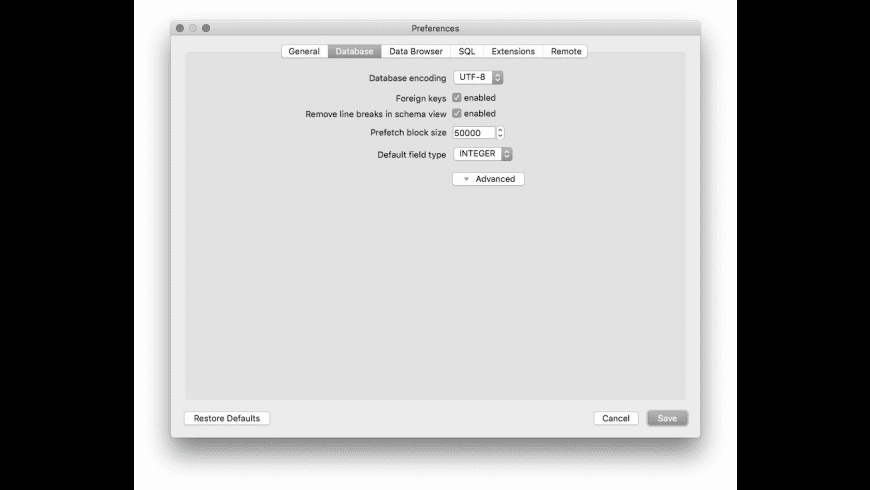How To Download Sqlite For Mac
I use Liya from the Mac App Store, it's free, does the job, and the project is maintained (a month or so between updates as of Jan 2013). I also test a lot on the device. You can access the SQLITE database on the device. In the Browse tab, you can type SQLite, then you can get the downlink link of System.Data.SQLite, System.Data.SQLite and System.Data.SQLiteEF6(SQLite Database Engine). Now you can download the System.Data.SQLite Package. Download the latest version of DB Browser for SQLite for Mac - Create database files compatible with SQLite (was SQLite Database Browser). Read 1 user reviews of DB Browser for SQLite on MacUpdate.

File TypeSQLite Database File
| Developer | SQLite |
| Popularity | |
| Category | Database Files |
| Format | Binary |
What is an SQLITE file?

An SQLITE file contains a database created with SQLite, a lightweight (RDBMS) widely used in application development for storing embedded databases. SQLITE files are often created by software developers for storing data used by their applications.
SQLite databases store data in tables, which may contain multiple fields of various data types such as text or integers. Developers can access and modify this data using SQL queries or 'CRUD' (create, read, update, delete) operations. Since databases are self-contained, updates to the database are fully contained within the SQLITE file. However, SQLite may record transaction information in a second temporary file called a rollback journal.
The SQLite library is freely available and is supported by all major mobile and desktop platforms including Android, iOS, Windows, and macOS. Additionally, all major programming languages provide support for SQLite.
NOTE: The file extension '.sqlite' is not always used for SQLite databases. Developers often use a different file extension such as '.dat' or '.db' to conceal the file format.
 Open over 300 file formats with File Viewer Plus.
Open over 300 file formats with File Viewer Plus.Programs that open SQLITE files
How To Download Sqlite For Mac Version


- SQLite Tutorial
- Advanced SQLite
- SQLite Interfaces
- SQLite Useful Resources
- Selected Reading
SQLite is famous for its great feature zero-configuration, which means no complex setup or administration is needed. This chapter will take you through the process of setting up SQLite on Windows, Linux and Mac OS X.
Sqlitestudio Mac
Install SQLite on Windows
Step 1 − Go to SQLite download page, and download precompiled binaries from Windows section.
Step 2 − Download sqlite-shell-win32-*.zip and sqlite-dll-win32-*.zip zipped files.
Step 3 − Create a folder C:>sqlite and unzip above two zipped files in this folder, which will give you sqlite3.def, sqlite3.dll and sqlite3.exe files.
Step 4 − Add C:>sqlite in your PATH environment variable and finally go to the command prompt and issue sqlite3 command, which should display the following result.
Install SQLite on Linux
Today, almost all the flavours of Linux OS are being shipped with SQLite. So you just issue the following command to check if you already have SQLite installed on your machine.
If you do not see the above result, then it means you do not have SQLite installed on your Linux machine. Following are the following steps to install SQLite −
Step 1 − Go to SQLite download page and download sqlite-autoconf-*.tar.gz from source code section.
Step 2 − Run the following command −
Sqlite Download
The above command will end with SQLite installation on your Linux machine. Which you can verify as explained above.
Install SQLite on Mac OS X
Though the latest version of Mac OS X comes pre-installed with SQLite but if you do not have installation available then just follow these following steps −
Mac Sqlite3
Step 1 − Go to SQLite download page, and download sqlite-autoconf-*.tar.gz from source code section.
Step 2 − Run the following command −
Sqlite Download For Windows 10 64 Bit
The above procedure will end with SQLite installation on your Mac OS X machine. Which you can verify by issuing the following command −
How To Download Sqlite For Mac Os
Finally, you have SQLite command prompt where you can issue SQLite commands for your exercises.
